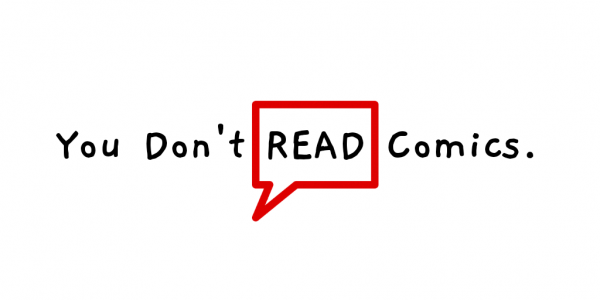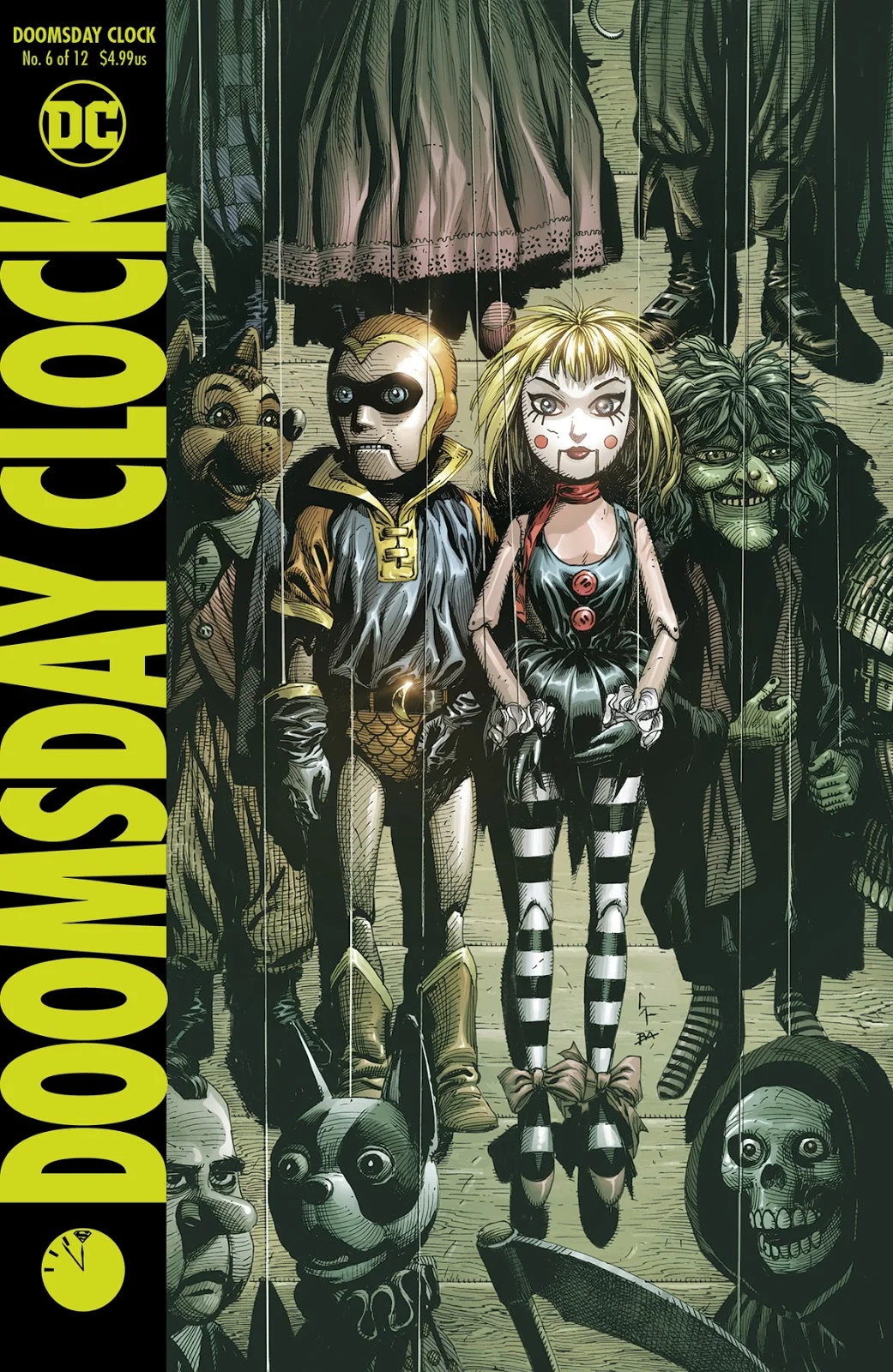Mister Miracle #10 // Review
Mister Miracle #10, by Tom King, Mitch Gerads, and Clayton Cowles, features Scott and Barda trying to make a terrible decision. How can they weigh the future of their child, Darkseid’s price for peace, over the billions of lives the war threatens? King and Gerads have expertly woven threads of depression, love, and war together as this series has progressed, creating one of the best books on the market. This issue is a key addition to the story, as all of those come together and Scott and Barda reach their momentous decision.
Back on Earth to take a breather and make up their minds about Darkseid’s proposal, Scott and Barda try and get back to their old lives, even for a little bit. Scott goes out drinking with Blue Beetle and Booster Gold, looking for advice and escape. Scott and Barda plan Jacob’s birthday party. On a trip to the park with Jacob, they finally talk about Scott’s suicide attempt. As Funky Flashman and Scott hang decorations for Jacob’s party, Funky tells Scott a story that he and Jacob made up. Finally, Scott comes to a decision about what to do and tells Barda.
This issue is a masterpiece of tension. The war between Apokolips and New Genesis, and Darkseid’s stated price for peace, hangs over everything Scott and Barda do, a sword of Damocles ready to fall at any time. It gets to be so bad that Scott asks the advice of an employee at the party supply store what he should do. King adroitly deploys this tension throughout the book, maintaining a sense of peril and impending doom even in the mundanity of the events of the book. It takes an issue that is mostly about two people planning a birthday party and makes it feel like those two people are negotiating a minefield. Two big themes in this book has been mental health and how the terrible things people go through color the rest of their lives, and those themes inform the decision making process for both characters. Even though they have each other, Scott and Barda’s upbringing on Apokolips have left massive emotional scars on them. A big question that keeps getting asked in this issue is are they willing to do that to their son? That question is the aforementioned minefield Scott and Barda are trying to get through. Are they willing to saddle their son with all the pain they’ve gone through just to win a war?
Working together, King and Gerads paint a perfect picture of two people trying to answer that question. King’s script and dialogue set it all up, and Gerads’ pencils knock it all out of the park. There’s a scene where Scott is in the shower while Barda is talking to Scott about the upcoming party, and he collapses, the weight of everything wearing him down. Gerads captures the slide panel by panel, impressing upon readers what Scott is going through, letting them watch as the fate of two worlds and future of his son collide above him and bear down on him. Throughout the book, he imbues the characters with an expressiveness that illustrates exactly what they’re going through on the inside. King fits in another sly little homage to the relationship between Stan Lee, the basis for Funky Flashman, and Jack Kirby, the namesake of Scott and Barda’s son, Jacob. Funky tells a story he and Jacob came up with, a familiar story to anyone who knows their history, and gives Jacob all the credit for coming up with it. For anyone familiar with Stan and his tumultuous relationship with Jack Kirby in later years and how little credit Kirby got from Lee for their collaborations, this is a wonderful little fantasy, a moment of contrition that Kirby fans will never get in real life.
The high point of the book, where King and Gerads gel perfectly and give readers something really special, is the scene in the park where Scott and Barda talk about his suicide attempt. It’s been another source of tension between the two, and, heretofore, hasn’t been spoken about. Gerads’ expressive pencils combine with King’s adroit dialogue and show two people on the verge of breaking, their whole world coming down around them. Barda has quietly supported Scott, being there for him through everything, but here she finally loses it on him, and it’s everything he’s deserved. She has worked to hold him together, and, as he talks about how normal and well adjusted they are after their tortuous upbringing on Apokolips, she can’t handle it. Her righteous anger hits Scott in waves as she lays bare what the true cost of the terrors of their upbringing is. Looking at Scott and his body language, readers can tell he knows she’s right, but he’s the hero til the end, trying to rationalize letting go of their son to save billions of lives. He knows what the horrors of Apokolips have done to both of them, but he can’t set aside his heroic nature, the very thing that allowed him to survive Apokolips. It’s this same nature that has driven him to ignore the toll of all that has happened to him, though, and deep down, he knows that. He knows his wife is right, and he knows what he’s considering is the worst choice, but he doesn’t know what else to do.
Mister Miracle #10 feels like the turning point of the series. With two issues left, King and Gerads have set up the end game while staying true to the themes of the book up to this point. Scott and Barda stare down the face of a terrible choice and make the only one that makes sense for the two of them. It’s the perfect choice and this is a perfect comic. Sure, there’s no big fights or earth-shattering character revelations. It’s mostly just two people trying to come to grips to what has happened to them and what is happening to them. This central conflict, though, is so powerful and so masterfully done that it keeps readers turning the pages, dying to see what will come next. So far, Mister Miracle has been a standout book, but this issue transcends what has come before, hitting a new level of brilliance.










